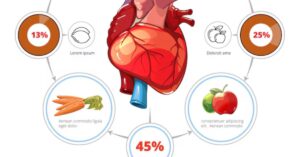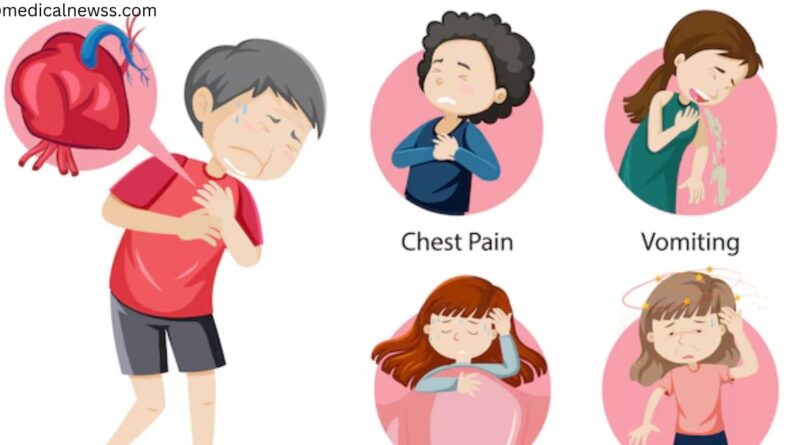Can stress cause heart problems
Introduction
Stress is part of modern life and has an unbelievable influence on health. Is it true to claim that stress cause heart problems. There is a good relationship between chronic stress and heart-related diseases such as heart attack or even stroke. It’s due to the fact that the stress provokes physiological reactions like elevated heart rate and blood pressure, which cause strain to the cardiovascular system. To understand how stress can affect the heart is to take some precautionary measures for healthy improvement.
The science of stress and heart health
It is accompanied by surges of hormones like cortisol and adrenaline that activate the body’s “fight or flight” response. Although this is beneficial in emergency conditions, chronic stress keeps the body in a heightened state, raises blood pressure and heart rate, and eventually may result in inflammation and arterial wall damage, causing heart issues.
Stress and Heart Health: Understanding insights about it impact and risks inclusive of its link to tooth infections
- Blood pressure spike: This can put pressure on your arteries.
- Rapid Heart Rate: This can lead to arrhythmias sometime afterwards.
- Weakened Heart Muscle: Chronic stress will weaken the heart’s ability to pump blood efficiently.
Chronic Stress and High Blood Pressure

Chronic stress often leads to chronic high blood pressure, a major risk of heart disease. Overeating, smoking, or excessive alcohol use worsens the situation. Properly managing your stress can dramatically reduce high blood pressure and control heart disease.
- Transitory Surges: Stress causes blood pressure to rise cyclically but only temporarily.
- Risk of High Blood Pressure: Chronic stress always increases the risk of hypertension at a later date.
- Vessel Damage: The blood pressure causes damage to the vessel gradually.
Stress-Induced Inflammation: The Silent Culprit
The inflammation brought about by stress contributes to the worsening of the cardiovascular diseases. This develops inflammatory markers that over time lead to such conditions as atherosclerosis, where the walls of the arteries become damaged due to the formation of plaques and increases the chances of heart attack.
Emotional Stress and Heart Attacks
Such is emotional stress, particularly griefers and unanticipated traumatic episodes; Takotsubo cardiomyopathy, or “broken heart syndrome,” has been triggered. This heart condition, which temporarily mimics an acute myocardial infarction, explains how acute stress affects the heart.
Role of Stress in Arrhythmias
Stress leads to arrhythmias, which are irregular heart rhythms. The more people have pre-existing heart problems, the more they are susceptible to these irregularities. In this regard, people must learn how to handle their stress levels properly to achieve a healthy heart.
Stress and Lifestyle
Stress always tends to influence unhealthy lifestyles that make heart problems even worse. Overeating and a sedentary lifestyle because of stress lead directly to obesity, diabetes mellitus, and hypertension, among others—all risk factors for heart diseases.
Stress and gender-related heart risks
In its nature, stress will impact the two sexes differently and consequently will impact their stress cause heart problems. Evidence reveals that workplace stress has caused more men to suffer heart attacks than women, whereas more women are exposed to increased risks through emotional and interpersonal stressors.
Stress Coping Mechanisms: Reducing Stress for Healthy Hearts

Coping mechanisms, such as exercise, mindfulness, and time management, can help reduce the negative impacts of stress on the heart. Particularly, frequent exercise decreases stress hormones and makes the cardiovascular system more robust.
Work-related stress and cardiovascular diseases
With increased hours and demands, workplace stress is on the rise, and this is leading to an increased risk of hypertension and heart disease. Introducing the workplace with breaks, meditation, and support can reduce stress and keep the heart healthy.
Can stress cause a heart attack?
stress cause heart problems Yes, there might be extreme cases of stress that would trigger a heart attack, especially in those individuals with heart conditions.
- Narrowed Arteries: Stress deteriorates diseases like atherosclerosis.
- Sudden Peaks: The stressful episode causes sudden spikes in stress hormones that subsequently trigger a heart attack.
- Broken Heart Syndrome: Extreme stress similar to a heart attack.
Early warning signs and stress management help prevent such attacks.
Long-Term Stress and Heart Disease
This leads to heart disease in the long term as a result of prolonged stress.
- Inflammation. Stress causes inflammation of blood vessels.
- Unhealthy Coping Behaviors: Stress may prompt smoking, overeating, or inactivity.
- Plaque Buildup: Prolonged stress accelerates artery plaque formation.
Long-term management of stress is essential in decreasing heart disease cases.
Mental Stress and Arrhythmias
Stress doesn’t just affect the heart’s structure; it can disrupt its rhythm.
- Palpitations: Feeling your heart skip beats during stress.
- Atrial Fibrillation: Emotional stress places a person at risk for arrhythmias.
- Stress-induced Rhythm Issues: Excessive episodes may damage the heart.
Stress and Lifestyle Choices
Usually, stress results in destructive behaviors that may negatively impact the heart.
- Smoking: A common coping mechanism during stress.
- Overeating: Foods high in sugar and fats cause stress to the heart.
- Inactivity: Stress decreases the inclination to be active.
Healthy behaviors are needed for healthy hearts.
Women, Stress, and Heart Diseases
Women are more likely to suffer from stress-related heart conditions like broken heart syndrome.
- Hormonal Impact: Stress affects estrogen levels, influencing heart health.
- Emotional Pressure: Caregiving is perceived to be stressful in women’s lives.
High Risk: Women do not pay much attention to heart symptoms, thus increasing their risk.
Awareness and self-care are essential to women’s heart health.
Can stress trigger heart problems in young adults?
stress cause heart problems Even young people cannot remain safe from heart problems through tension.
- Earliest Symptoms: Stress brings palpitations and chest aches.
- Poor Lifestyle Habit: Stress creates poor lifestyle habits in early life.
- Risk in the Future: The probability of future danger is higher when stress is seen early.
Develop early a healthy approach toward stress management for protection of long-term heart health.
How to Avoid Stress for a Healthy Heart
Manage stress—the best way to reduce the risk of heart conditions.
- Deep breathings and meditation relax the mind.
- Exercise regularly reduces stress hormones.
- Talking to friends or professionals relieves emotional stress.
Maintain stress management to safeguard your heart.
When to Seek Help for Stress and Heart Problems
If stress is interfering with your life or heart, get medical help.
- Continuous Symptoms: Pain in the chest or difficulty breathing are warning signs.
- Medical Advice: Doctors can manage stress and related effects.
- Preventive Medicine: Periodic checkups detect problems early.
Do not ignore other symptoms that can be symptoms for heart conditions.
Conclusion
In conclusion, the question “Can stress cause heart problems” has a clear answer: yes, it can. Chronic and acute stress are big risks to cardiovascular health, and with this knowledge along with the proper implementation of stress management, an individual can protect his heart as well as his health as a whole.
FAQ
How does stress directly affect the heart?
Stress can lead to hormonal changes within the body, which increase heartbeats and blood pressure, leading to inflammation and damage to arteries.
Can stress management reverse heart problems?
Even though stress management cannot reverse the already-caused heart damage, it can prevent further complications and enhance overall heart health.
What are the effective ways of handling stress?
Exercise, living mindfully, and maintaining a healthy lifestyle are great ways to alleviate stress and maintain heart health.
Is stress more likely to cause heart problems in females?
The risks involved for women regarding heart problems due to emotional stress, such as “broken heart syndrome,” reflect and restate gender-specific differences.
How would workplace stressors affect cardiac health?
Workplace stress precipitates hypertension and heart disease. It is, thus, time to introduce some interventions that reduce stress in the workplace.




